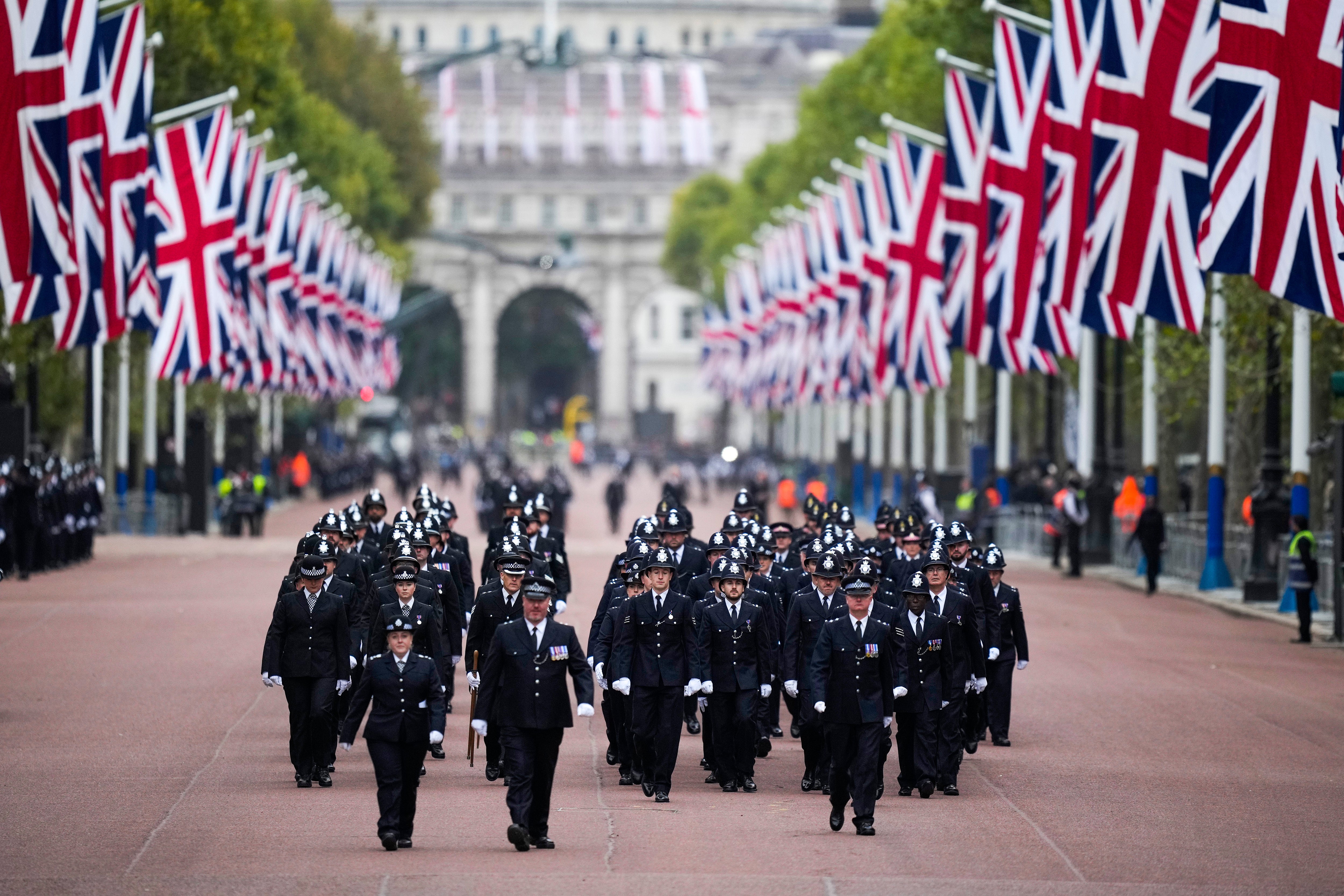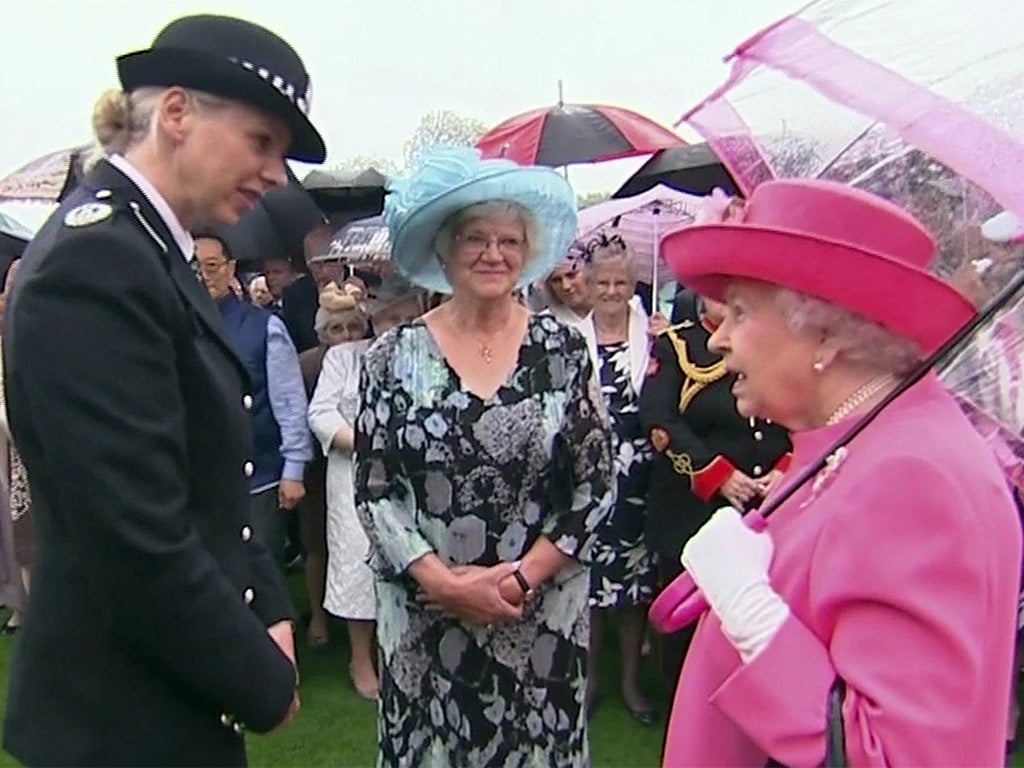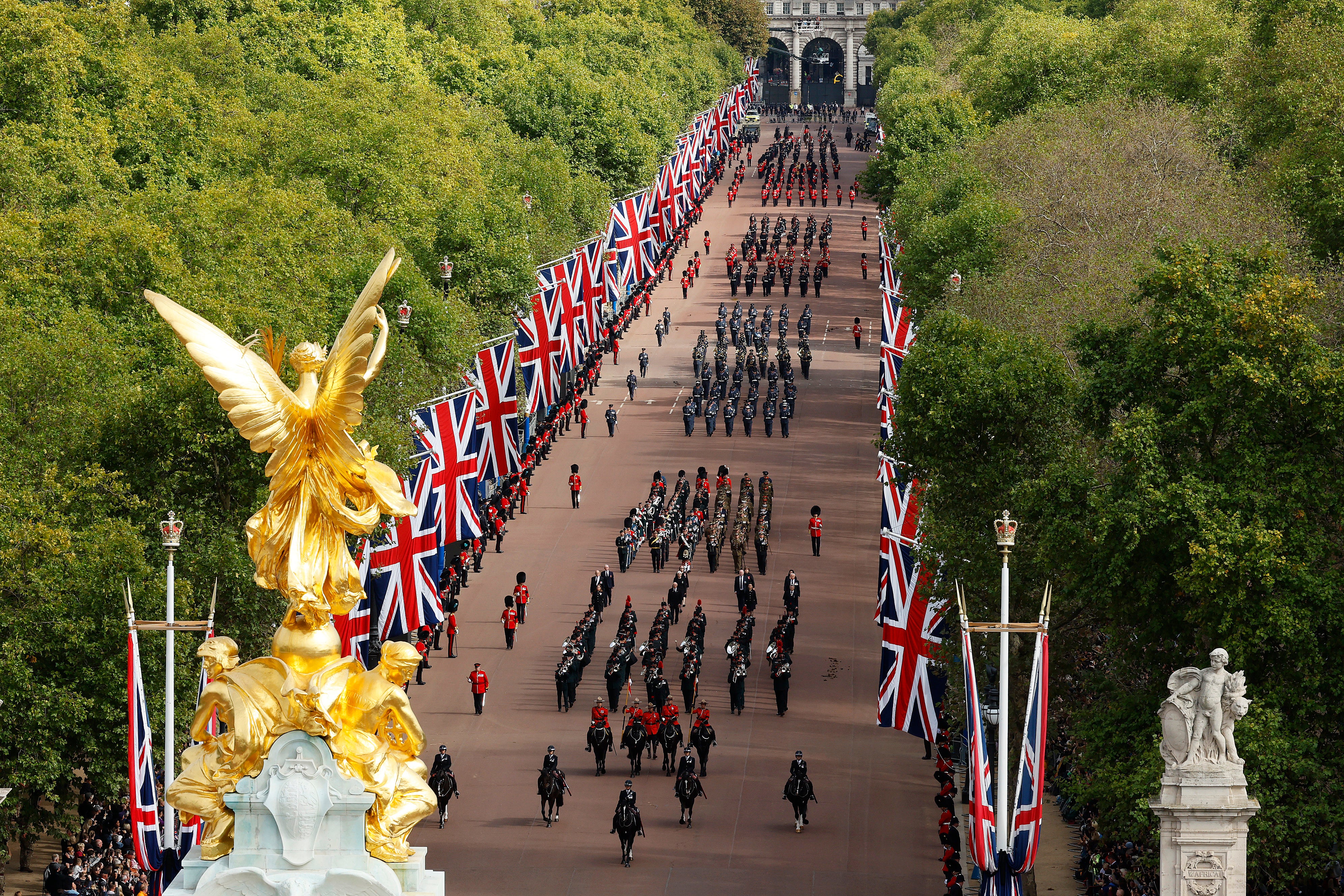Police officers brought in from Bermuda and Falklands to guard Queen’s funeral
Operation London Bridge saw 5,000 officers from across UK and overseas territories deployed to royal events

Your support helps us to tell the story
From reproductive rights to climate change to Big Tech, The Independent is on the ground when the story is developing. Whether it's investigating the financials of Elon Musk's pro-Trump PAC or producing our latest documentary, 'The A Word', which shines a light on the American women fighting for reproductive rights, we know how important it is to parse out the facts from the messaging.
At such a critical moment in US history, we need reporters on the ground. Your donation allows us to keep sending journalists to speak to both sides of the story.
The Independent is trusted by Americans across the entire political spectrum. And unlike many other quality news outlets, we choose not to lock Americans out of our reporting and analysis with paywalls. We believe quality journalism should be available to everyone, paid for by those who can afford it.
Your support makes all the difference.Police officers from as far away as Bermuda and the Falklands were sent to the UK as part of Operation London Bridge, it has been revealed.
Plans dating back decades were activated following the Queen’s death, seeing 5,000 officers from across the country and British Overseas Territories deployed for ceremonial events in London, Windsor and Scotland.
Police forces in Anguilla, Monserrat, Bermuda, Cayman Islands, Gibraltar, Cyprus, the British Virgin Islands, the Falklands, the Channel Islands and the Isle of Man bolstered numbers in the historic operation.
The funeral of Queen Elizabeth II was the largest ever deployment for the Metropolitan Police, beating the opening and closing ceremonies for the London Olympics in 2012, with 2,600 uniformed officers working on the day.
About 650 armed officers were sent out over 10 days of ceremonial events, which saw large crowds gather at locations deemed a high risk for terrorist attacks, and more than 500 specialist search teams scoured key landmarks and buildings.
They checked for potential threats hidden in phone boxes, drains, bins and other everyday objects while screening people travelling to venues to pay their respects.
British Transport Police chief constable Lucy D’Orsi, the national police coordinator for Operation London Bridge, said: “The scale and complexity of this operation was incredible. I was proud to see UK policing come together to keep the public safe and ensure the operation ran smoothly. Throughout it all, police officers and staff involved showed deep compassion, pride and professionalism.”
Suella Braverman, the new home secretary, called the operation “policing at its best”.

There was a backlash to a wave of police interventions and arrests targeting peaceful anti-monarchy protesters in the days following the Queen’s death.
Several people were charged with criminal offences in Scotland, including a man who heckled Prince Andrew and a woman who held up a sign saying “abolish monarchy”.
Only one protester is known to have been arrested in England, after shouting “who elected him?” at a proclamation ceremony in Oxford for the new King, but he was later de-arrested.
In London, police questioned a barrister who held up a blank piece of paper outside parliament, claiming that it would be “offensive” if he wrote the slogan “Not My King” on it.

Following the incidents, the National Police Chiefs’ Council sent out guidance to forces across the UK on 13 September “to ensure a national consistency of approach”.
Ms D’Orsi told The Independent that police officers had made “operational decisions” in response to individual incidents.
“We felt it was important to remind everyone of the guidance already out there and the legislation that exists,” she added.
“We are a country which has freedom of speech and policing isn’t there to do anything other than police in a fair way that reflects the legislation.”
Officers were directed to official guidance saying that police have a “positive duty” to facilitate freedom of expression and assembly, and the rights can only be limited for lawful and proportionate reasons.
Asked whether the demands of the operation had a negative impact on policing elsewhere in the country, Ms D’Orsi said she had not received any reports but some forces may have cancelled leave, rest days and extended shifts to cope.
Disorder between Hindu and Muslim groups in Leicester last weekend saw some public order units travelling to London for the Queen’s funeral diverted en route.
“We were able to provide them with some additional support because we had some cops travelling around who were passing by Leicester and were able to support them,” Ms D’Orsi said.
The senior officer said Operation London Bridge was “primarily a public safety operation”, and that formal assessments had warned of risks to crowded places.

“Ultimately we were there facilitating what the country wanted, which was people wanting to come and show their respects to the Queen and support her family,” she added. “We are very proud of protecting the public.”



Join our commenting forum
Join thought-provoking conversations, follow other Independent readers and see their replies
Comments